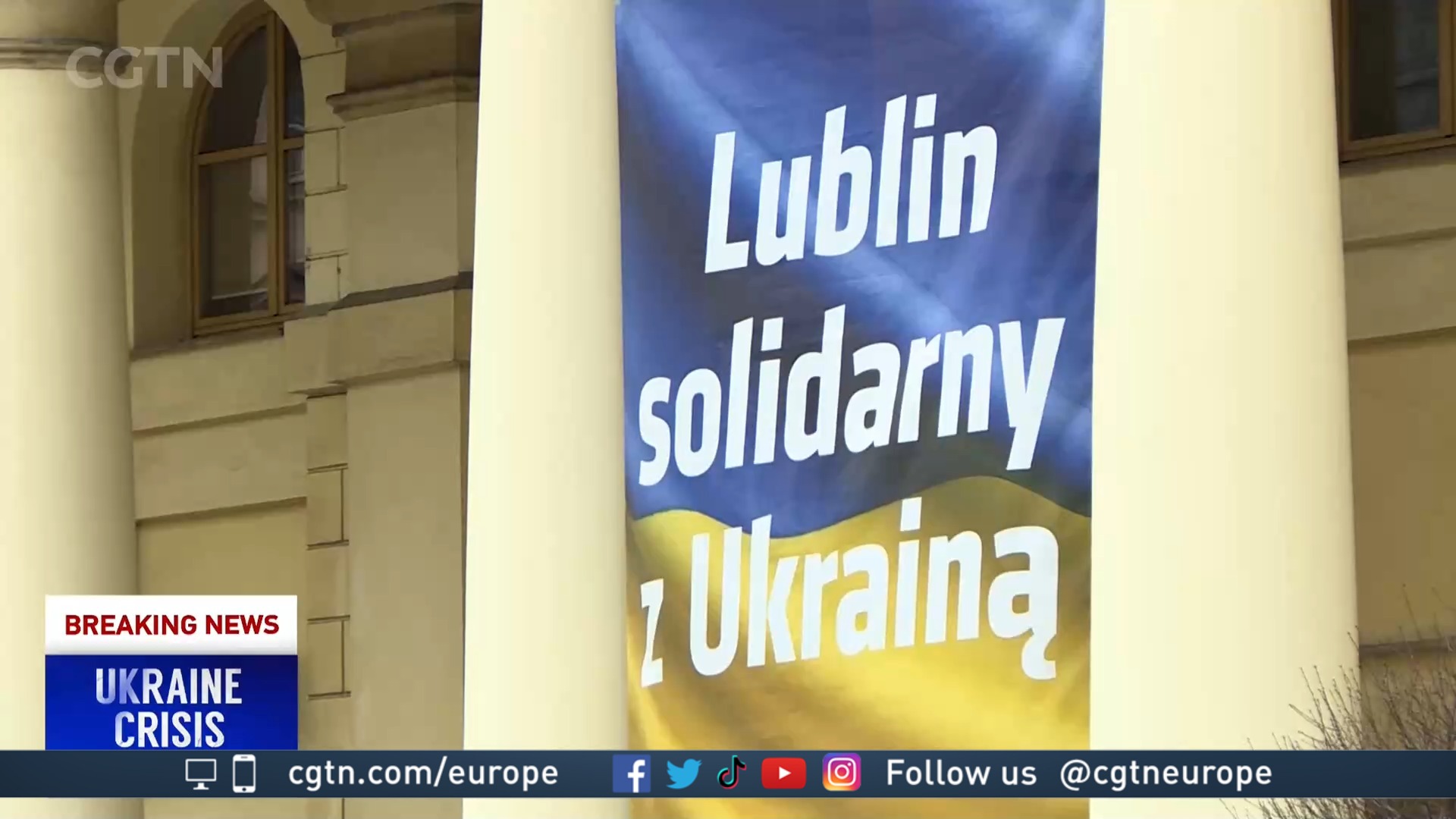03:01

Officials say more than 800,000 people from Ukraine have crossed the border into Poland over the last ten days, fleeing violence stemming from the Russian invasion of the country.
Many of the arrivals are women and children. Men between the age of 18 and 60 have been asked to stay behind to help Ukrainian military efforts.
The European Union has adapted its refugee policy to ease their entry into Poland and other neighboring countries, but many displaced people say wait times at the border can still top 24 hours or more.
READ MORE:
Putin: Western sanctions akin to war
Ukraine conflict timeline
Spain's Ukrainian diaspora helping out
The journey is complicated, with buses and trains running emergency rescue routes that don't always have a clear timetable. Onboard, they are full to the brim with every inch of space used for people and their possessions.
Others have opted to drive, but the safety of some highways within Ukraine has become unreliable in recent days.
After arriving in Poland, some refugees break into tears, as CGTN Europe reporters have observed.

A woman hugs her grandaugther as people wait in freezing cold temperatures to be transferred to a train station at the Medyka border crossing in Poland./Louisa Gouliamaki/AFP
A woman hugs her grandaugther as people wait in freezing cold temperatures to be transferred to a train station at the Medyka border crossing in Poland./Louisa Gouliamaki/AFP
They say they are relieved to reach safety and security but worry about the situation back home.
"I realized I was not at home only a couple of hours ago. I'm in Poland. I'm not in Ukraine. I'm far from my friends, my relatives," Oleksandra Nycheporuk, a student from Kyiv told us.
The 20-year-old made it to Lublin with her mother and sisters after a treacherous journey from Rivne. "It's just really hard. I don't feel anything – I'm not scared, I'm not frightened. But I'm not happy. I'm not sad," she added.
Her family will spend their first few nights in a shelter for women and children. It's one of the hundreds that have quickly opened across Poland since the invasion began. Local governments, businesses, and people have gone to extreme lengths to extend their solidarity.
"People invite people to their homes. They say, 'This is their home … you can stay here,'" said Krzysztof Stanowski, director of the Lublin City International Cooperation Center.
"We call it solidarity. It's a very important word for us. And definitely, we understand that today Ukrainians are struggling for Europe. They are in the war for the dream to be Europeans! And we are assisting them as we can," he added.

More than 1.5 million people have fled Ukraine since the start of the Russian invasion, according to the latest UN data. /Louisa Gouliamaki/AFP
More than 1.5 million people have fled Ukraine since the start of the Russian invasion, according to the latest UN data. /Louisa Gouliamaki/AFP
That support takes many forms. Lubin has received lorry loads of supplies at multiple donation centers. Some boxes are destined for people still living in Ukraine, via humanitarian aid convoys – others go to newly displaced people arriving in Poland.
"We have a common history, sometimes this history is very hard. But now this is a time when we have to help," said Marcin Gapski, who's organized a Red Cross donation drive at the National Museum in Lublin.
"There is no other way. It's one of the biggest tragedies in the 21st century and without any doubt, all polish people, our entire nation, try to be together with Ukrainians."

